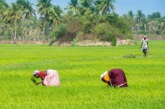Agenda for Durban
By Dr Arvind Kumar
At the 6-day first inter-sessional meeting from 3 to 8 April this year in Bangkok (Thailand), as a precursor to the formal round of UN talks, to be held later in 2011 in Durban, South Africa, poor countries and small islands states have used their combined muscle to keep debate at the UN climate change talks in 2011focused on steps to ensure global temperatures do not increase more than two degrees by the turn of the century. According to a recent IRIN newsreport, Jan Kowalzig, senior climate change policy advisor at Oxfam, told the Bangkok meeting: “Talking about the agenda is highly important and needs time, as it defines not only what you want to discuss but also under which headings/framing. For example, if a country believed that targets to reduce harmful greenhouse gas emissions were too weak, you need an agenda item under which you can talk about this, otherwise you cannot talk about it at all.”
In its latest assessment, the Intergovernmental Panel on Climate Change (IPCC) has noted that a two-degree Celsius increase in global temperatures by the turn of the century would have a catastrophic effect: escalating water stress in arid and semi-arid countries, more floods in low-lying coastal areas, coastal erosion in small island states, and the demise of up to 30 percent of animal and plant species. The final agenda for Durban leaves room for poor countries to make a case for extending the Kyoto Protocol – the treaty on reducing greenhouse gas emissions under the UN Framework Convention on Climate Change (UNFCCC) – the first phase of which ends in 2012. The next round of informal talks takes place in Bonn in June this year.
.



